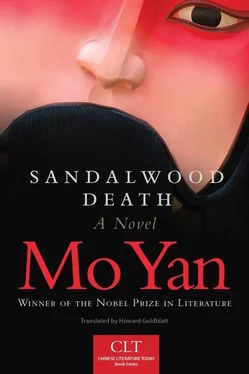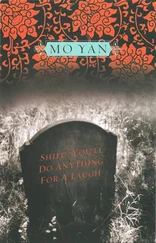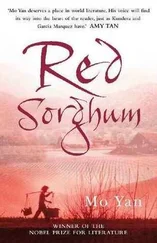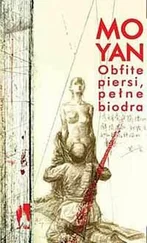Mo Yan
SANDALWOOD DEATH
A Novel
Translated by Howard Goldblatt
“The finest play ever staged cannot compete with the spectacle of a public slicing”
Zhao Jia
The challenges for the translator of Mo Yan’s powerful historical novel begin with the title, Tanxiang xing , whose literal meaning is “sandalwood punishment” or, in an alternate reading, “sandalwood torture.” For a work so utterly reliant on sound, rhythm, and tone, I felt that neither of those served the novel’s purpose. At one point, the executioner draws out the name of the punishment he has devised (fictional, by the way) for ultimate effect: “Tan—xiang—xing!” Since the word “sandalwood” already used up the three original syllables, I needed to find a short word to replicate the Chinese as closely as possible. Thus: “Sandal—wood—death!”
Beyond that, as the novelist makes clear in his “Author’s Note,” language befitting the character and status of the narrators in Parts One and Three helps give the work its special quality of sound. Adjusting the register for the various characters, from an illiterate, vulgar butcher to a top graduate of the Qing Imperial Examination, without devolving to American street lingo or becoming overly Victorian, has been an added challenge. Finally, there are the rhymes. Chinese rhymes far more easily than English, and Chinese opera has always employed rhyme in nearly every line, whatever the length. I have exhausted my storehouse of rhyming words in translating the many arias, keeping as close to the meaning as possible or necessary.
As with all languages, some words, some terms, simply do not translate. They can be defined, described, and deconstructed, but they steadfastly resist translation. Many words and terms from a host of languages have found their way into English and settled in comfortably. Most of those from Chinese, it seems, date from foreign imperialists’ and missionaries’ unfortunately misread or misheard Chinese-isms: “coolie,” “gung ho,” “rickshaw” (actually, that comes via Japanese), “godown,” “kungfu,” and so on. I think it is time to update and increase the meager list, and to that end, I have left a handful of terms untranslated; a glossary appears at the end of the book. Only one is given in a form that differs slightly from standard Pinyin: that is “dieh,” commonly used for one’s father in northern China. The Pinyin would be “die”!
This is a long, very “Chinese” novel, both part of and unique to Mo Yan’s impressive fictional oeuvre. There are places that are difficult to read (imagine how difficult they were to translate), but their broader significance and their stark beauty are integral to the work.
I have been the beneficiary of much encouragement in this engrossing project. My gratitude to the John Simon Guggenheim Foundation for its generous support, and to Ed, Mike, Jonathan, and David for writing for me. Jonathan Stalling has been in my corner from the beginning, as have representatives of the University of Oklahoma Press, for whose new and important series this is the inaugural work of fiction. Thanks to Jane Lyle for her meticulous editing. Finally, my thanks to the author for making clear some of the more opaque passages and for leaving me on my own for others. And, of course, to Sylvia, my best reader, sharpest critic, and, from time to time, biggest fan.
HOWARD GOLDBLATT
BOOK ONE
Head of the Phoenix
CHAPTER ONE
Meiniang’s Lewd Talk
The sun rose, a bright red ball (the eastern sky a flaming pall), from Qingdao a German contingent looms. (Red hair, green eyes.) To build a rail line they defiled our ancestral tombs. (The people are up in arms!) My dieh led the resistance against the invaders, who responded with cannon booms. (A deafening noise.) Enemies met, anger boiled red in their eyes. Swords chopped, axes hewed, spears jabbed. The bloody battle lasted all day, leaving corpses and deathly fumes. (I was scared witless!) In the end, my dieh was taken to South Prison, where my gongdieh’s sandalwood death sealed his doom. (My dieh, who gave me life!)
—Maoqiang Sandalwood Death.
A mournful aria
That morning, my gongdieh, Zhao Jia, could never, even in his wildest dreams, have imagined that in seven days he would die at my hands, his death more momentous than that of a loyal old dog. And never could I have imagined that I, a mere woman, would take knife in hand and with it kill my own husband’s father. Even harder to believe was that this old man, who had seemingly fallen from the sky half a year earlier, was an executioner, someone who could kill without blinking. In his red-tasseled skullcap and long robe, topped by a short jacket with buttons down the front, he paced the courtyard, counting the beads on his Buddhist rosary like a retired yuanwailang, or, better yet, I think, a laotaiye, with a houseful of sons and grandsons. But he was neither a laotaiye nor a yuanwailang—he was the preeminent executioner in the Board of Punishments, a magician with the knife, a peerless decapitator, a man capable of inflicting the cruelest punishments, including some of his own design, a true creative genius. During his four decades in the Board of Punishments, he had—to hear him say it—lopped off more heads than the yearly output of Gaomi County watermelons.
My thoughts kept me awake that night, as I tossed and turned on the brick kang, like flipping fried bread. My dieh, Sun Bing, had been arrested and locked up by County Magistrate Qian, that pitiless son of a bitch. Even if he were the worst person in the world, he would still be my dieh, and my mind was in such turmoil I could not sleep, forestalling any possibility of rest. I heard large mongrels grunting in their cages and fat pigs barking in their pens—pig noises had become dog sounds, and dog barks had turned into pig songs. Even in the short time they had left to live, they were tuning up for an opera. If a dog grunts, it is still a dog, and when a pig barks, it remains a pig. And a dieh is still a dieh, even if he does not act like one. Grunt grunt, arf arf . The noise drove me crazy. They knew they would be dead soon. So would my dieh. But animals are smarter than humans, for they detected the smell of blood that spread from our yard, and could see the ghosts of pigs and dogs that prowled in the moonlight. They knew that daybreak, soon after the red rays of sun appeared, would mark the hour that they went to meet Yama, the King of Hell. And so they set up a yowl—the plaintive call of impending death. And you, Dieh, what was it like in your death cell? Did you grunt? Bark? Or did you sing Maoqiang? I heard jailers say that condemned prisoners could scoop up fleas by the handfuls in their cells and that the bedbugs were as big as broad beans. You had lived a steady, conservative life, Dieh, so how could a rock one day fall from the sky and knock you straight into a death cell? Oh, Dieh…
The knife goes in white and comes out red! No one is better at butchering dogs and slaughtering pigs than my husband, Zhao Xiaojia, whose fame has spread throughout Gaomi County. He is tall and he is big, nearly bald, and beardless. During the day he walks in a fog, and at night he lies in bed like a gnarled log. Since the day I married him, he has badgered me with his mother’s tale of a tiger’s whisker. One day some roguish creature goaded him into pestering me to obtain one of those curly golden tiger whiskers that, when held in the mouth, confer the ability to see a person’s true form. The moron, more like a rotting fish bladder than a man, badgered me all one night, until I had no choice but to give in. Well, the moron curled up on the kang and, as he snored and ground his teeth, began to talk in his sleep: “Dieh Dieh Dieh, see see see, scratch the eggs, flip the noodle…” He drove me crazy. When I nudged him with my foot, he curled up even tighter and rolled over, smacking his lips as if he’d just enjoyed a tasty treat. Then the talk started again, and the snoring and the grinding of teeth. To hell with him! Let the dullard sleep!
Читать дальше












